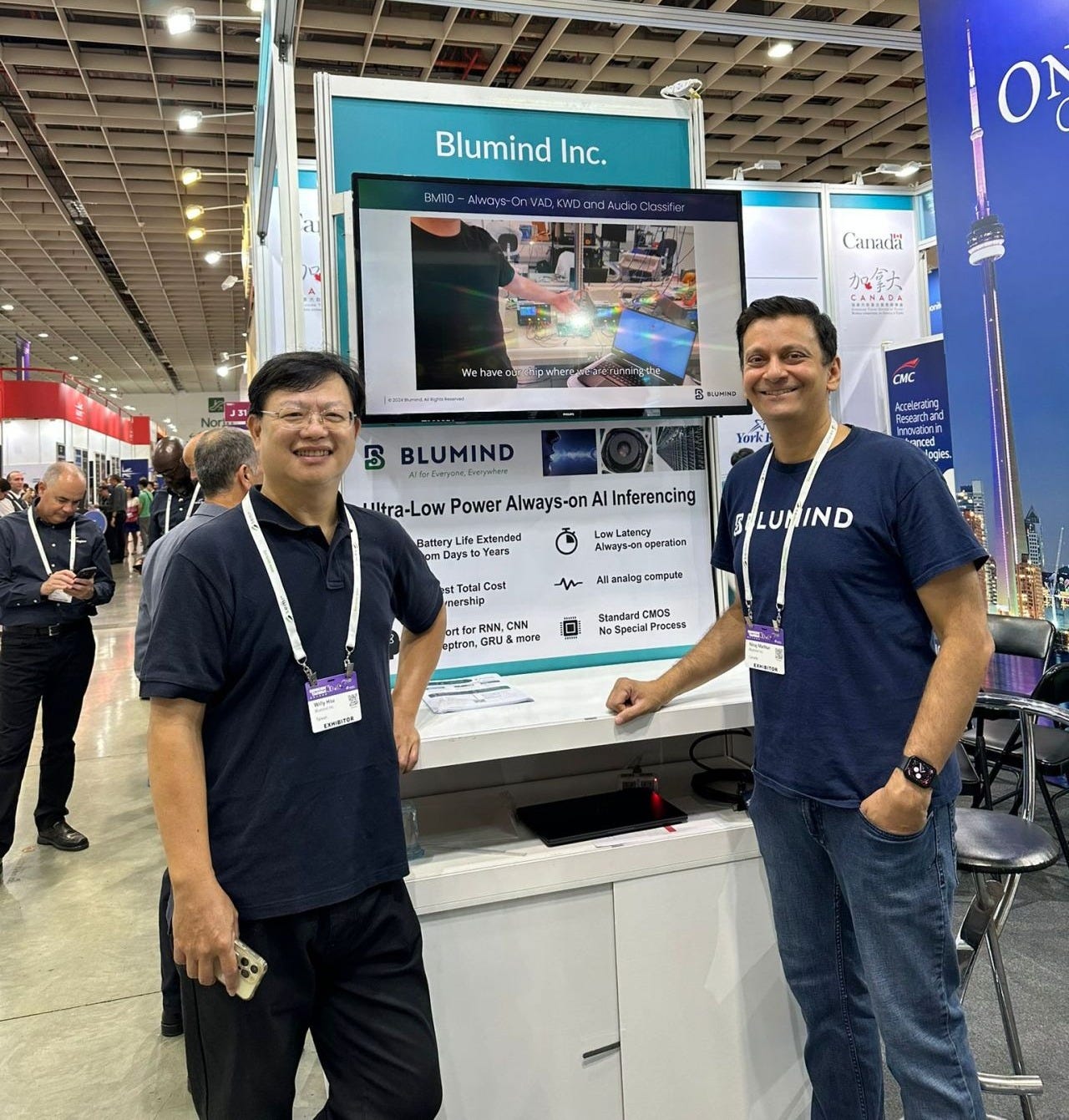Canadian Startup Blumind to Release First Product Samples, Targets Wearables Market Expansion

Blumind, a Canadian deep-tech AI startup pioneering the development of ultra-low-power analog AI chips for edge computing, is preparing to deliver its first-generation analog AI chip to lead customer samples next month. This milestone marks a major step towards delivering always-on, on-device AI at unprecedented energy efficiency.
Blumind’s analog AI technology, branded AMPL™, is designed to cut power consumption and latency for always-on edge AI applications. “We believe this offers a paradigm shift from traditional digital methods, which is crucial for power-efficient, real-time processing in sectors like robotics, smart mobility, medical, and AIoT”, said Niraj Mathur, Blumind’s Co-Founder and CEO.
Advancing Silicon Development
The company’s initial prototype, fabricated last year, underwent design refinements to improve stability and performance. The updated version has been taped out to the foundry with silicon expected in early Q4. The prototype sample chip is expected to be released to customers after internal engineering verification.
In parallel, CTO-led technology roadmap updates are pushing the company into ambitious new territory. The company's first two planned products are focused on audio and image inference. Blumind aims to scale its neural network architecture by “at least a thousand times”, opening pathways to support Small Language Models (SLMs) and potentially even Large Language Models (LLMs) directly at the edge. Early discussions with industry partners suggest strong interest in these capabilities.
Partnerships and Packaging Strategy
Blumind is also preparing to ship its evaluation boards (EVBs) to potential customers who have shown interest. These boards are designed to be easily connected to various popular micro-processor (MCU) platforms including Raspberry Pi, enabling developers to quickly validate its technology.
To better meet customer needs, Blumind has diversified its chip packaging options. Based on feedback from customers and industry partners, the company has developed a more compact CSP package in addition to its larger QFN package. The CSP is over 50% smaller and directly addresses the stringent space constraints of the wearable device market, where every millimeter counts. The company also offers its processors as chiplets for multi-chip modules that can co-package sensors and MCUs to further minimize size and cost.
This approach is already yielding results. A leading international consumer wearable brand is evaluating a new platform featuring Blumind’s solutions. The company is working with Taiwanese packaging and test partners to ensure a stable supply chain.
Blumind's current foundry partner remains GlobalFoundries, utilizing a mature 22-nanometer process. This partnership has been a good fit for the company's early-stage development, and the company continues to explore collaborations with foundry partners in Asia, including Taiwan.
Funding and Growth
The company successfully closed a C$20 million Series A funding round in April to accelerate the development and commercialization of its groundbreaking analog AI technology.
The significant investment was co-led by Cycle Capital and BDC Capital, with additional participation from existing investors including Fusion Fund, Two Small Fish Ventures, and Real Ventures. This capital injection will be used to expand the engineering and development teams, support existing Tier-1 customers, and establish new strategic partnerships as the company pushes to commercialize its technology.
Read TechSoda’s previous interview with Blumind:
Blumind: Revolutionizing Power Efficiency in Environmental Sensing and Machine Learning
Sensors detect analog environmental parameters and relay this information to the digital world, where it undergoes immediate digitization before being sent to a digital processor. However, this traditional approach can be incredibly wasteful.


